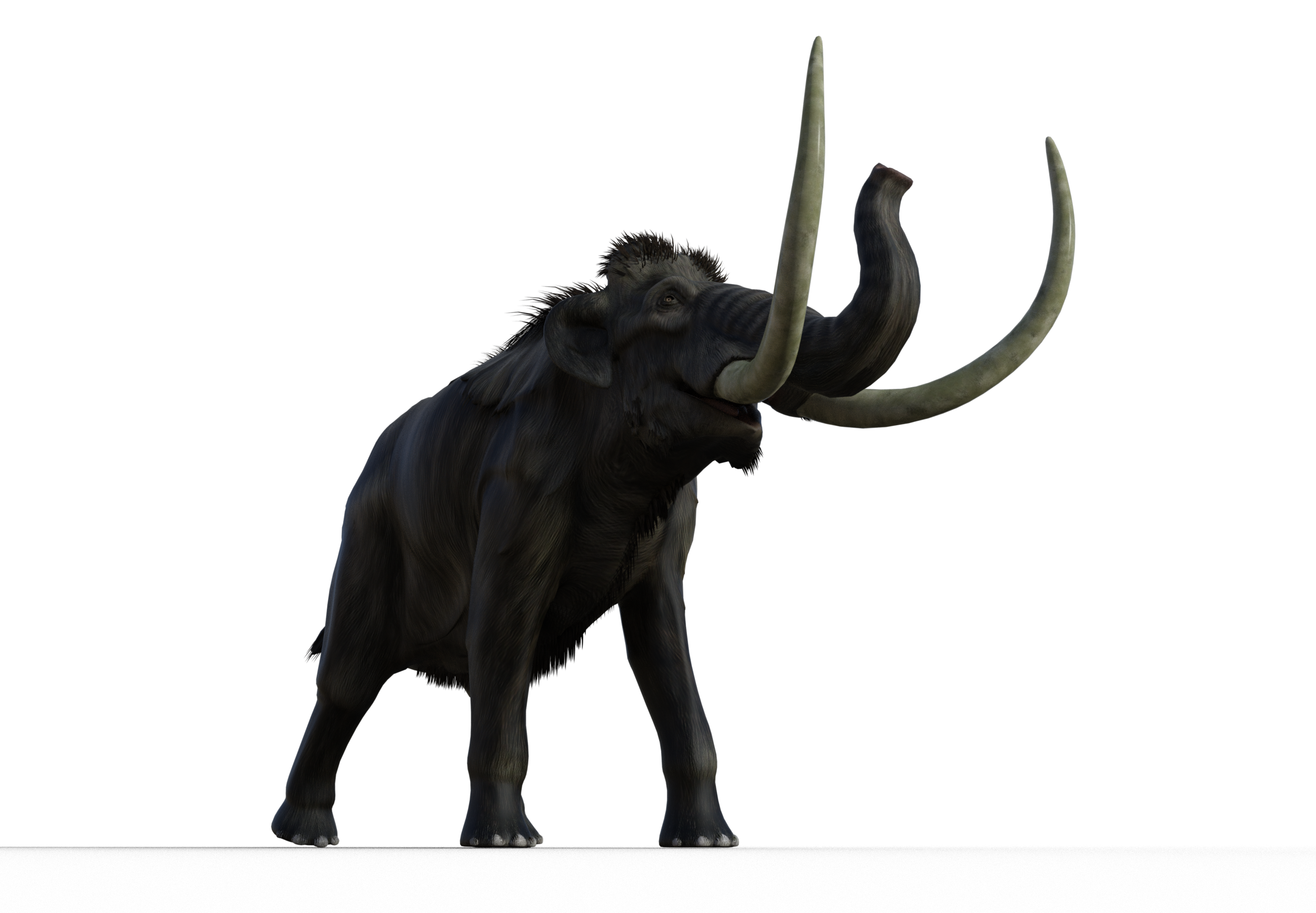
This image has format transparent PNG with resolution 2500x1735.
You can download this image in best resolution from this page and use it for design and web design.
Mammoth PNG with transparent background you can download for free, just click on download button.
A mammoth is any species of the extinct elephantid genus Mammuthus, one of the many genera that make up the order of trunked mammals called proboscideans. The various species of mammoth were commonly equipped with long, curved tusks and, in northern species, a covering of long hair. They lived from the Pliocene epoch (from around 5 million years ago) into the Holocene at about 4,000 years ago, and various species existed in Africa, Europe, Asia, and North America. They were members of the family Elephantidae, which also contains the two genera of modern elephants and their ancestors. Mammoths are more closely related to living Asian elephants than African elephants.
The oldest representative of Mammuthus, the South African mammoth (M. subplanifrons), appeared around 5 million years ago during the early Pliocene in what is now southern and eastern Africa. Descendant species of these mammoths moved north and continued to propagate into numerous subsequent species, eventually covering most of Eurasia before migrating into North America around 1.5-1.3 million years ago, becoming ancestral to the Columbian mammoth (M. columbi). The last species to emerge, the woolly mammoth (M. primigenius), developed about 400,000 years ago in East Asia, with some surviving on Russia's Wrangel Island in the Arctic Ocean, as well as possibly the Taymyr Peninsula on mainland Siberia, until as recently as roughly 3,700 to 4,000 years ago, still extant during the construction of the Great Pyramid of ancient Egypt.
Like their modern relatives, mammoths were quite large. The largest known species reached heights in the region of 4 m (13.1 ft) at the shoulder and weights of up to 8 tonnes (8.8 short tons), while exceptionally large males may have exceeded 12 tonnes (13.2 short tons). However, most species of mammoth were only about as large as a modern Asian elephant (which are about 2.5 m to 3 m high at the shoulder, and rarely exceeding 5 tonnes). Both sexes bore tusks. A first, small set appeared at about the age of six months, and these were replaced at about 18 months by the permanent set. Growth of the permanent set was at a rate of about 2.5 to 15.2 cm (1 to 6 in) per year.
Based on studies of their close relatives, the modern elephants, mammoths probably had a gestation period of 22 months, resulting in a single calf being born. Their social structure was probably the same as that of African and Asian elephants, with females living in herds headed by a matriarch, whilst bulls lived solitary lives or formed loose groups after sexual maturity.
Scientists discovered and studied the remains of a mammoth calf, and found that fat greatly influenced its form, and enabled it to store large amounts of nutrients necessary for survival in temperatures as low as −50 °C (−58 °F). The fat also allowed the mammoths to increase their muscle mass, allowing the mammoths to fight against enemies and live longer. Woolly mammoths evolved a suite of adaptations for arctic life, including morphological traits such as small ears and tails to minimize heat loss, a thick layer of subcutaneous fat, long thick fur, and numerous sebaceous glands for insulation , as well as a large brown-fat hump like deposit behind the neck that may have functioned as a heat source and fat reservoir during winter.
In this page you can download free PNG images: Mammoth PNG images free download